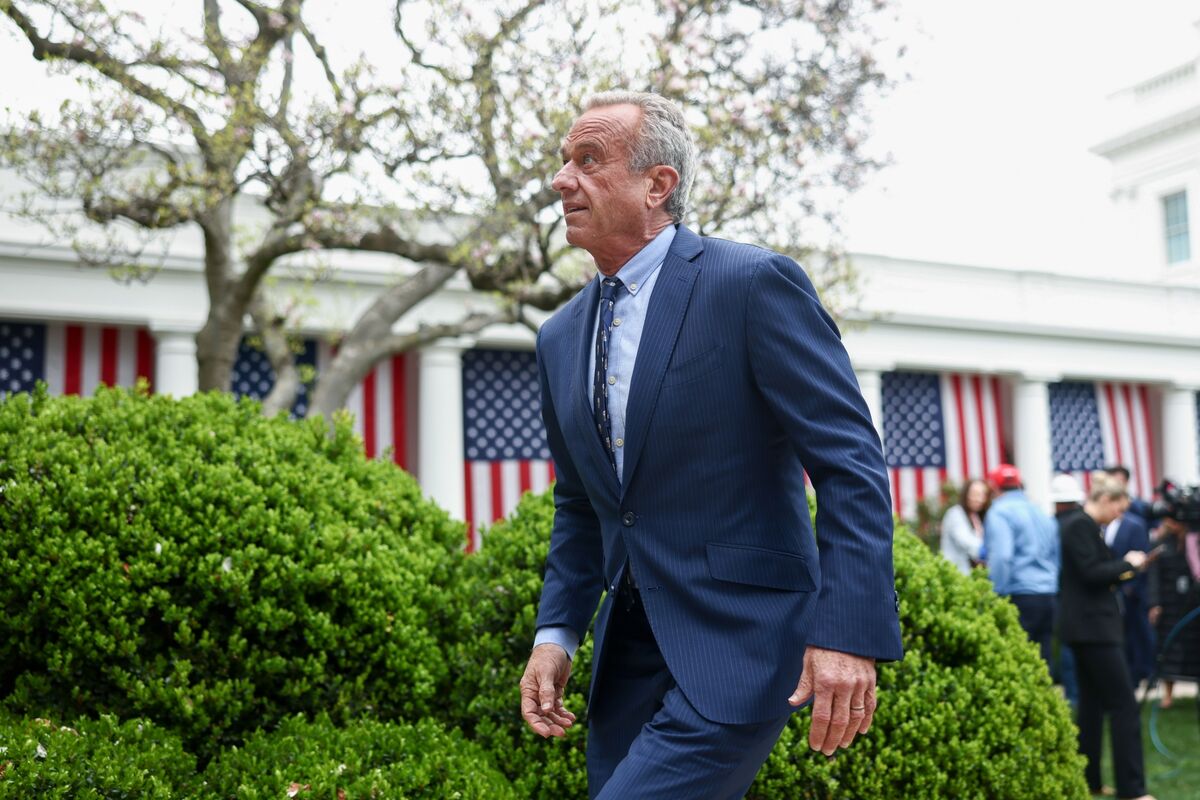RFK Jr. Accuses FDA of 'Deep State' Control: A Deep Dive into the Controversy
Robert F. Kennedy Jr.'s recent accusations against the Food and Drug Administration (FDA), alleging "deep state" control, have ignited a firestorm of debate. His claims, made during a recent podcast appearance and subsequent interviews, haven't just sparked controversy; they've raised serious questions about transparency, regulatory oversight, and the very nature of public trust in governmental agencies. This article will delve into Kennedy's allegations, the counterarguments, and the broader implications of this unfolding controversy.
Kennedy's Claims: A Summary of the Allegations
Kennedy's central claim revolves around the assertion that the FDA is unduly influenced by powerful, unseen forces, operating outside of legitimate democratic processes. He hasn't explicitly named individuals or groups, instead opting for broader accusations of corruption and collusion. His arguments often cite specific instances of FDA decision-making, suggesting these decisions were driven by factors other than public health and scientific evidence. He alleges a pattern of behavior that he believes supports his "deep state" narrative. These allegations include, but aren't limited to:
- Bias in drug approvals: Kennedy suggests that the FDA prioritizes the interests of pharmaceutical companies over the safety and well-being of consumers.
- Suppression of dissenting voices: He claims that scientists and researchers who challenge the FDA's positions are silenced or marginalized.
- Lack of transparency: Kennedy criticizes the FDA's decision-making process, arguing it lacks transparency and accountability.
It's crucial to note that Kennedy provides anecdotal evidence and often relies on connecting seemingly disparate events to support his claims. He has not presented concrete, verifiable proof to substantiate his allegations of a widespread conspiracy.
Counterarguments and Rebuttals
The FDA, along with numerous scientists and public health experts, have strongly refuted Kennedy's claims. They point to the rigorous scientific processes involved in drug approval and emphasize the agency's commitment to public safety. Counterarguments often highlight:
- The FDA's regulatory framework: The FDA's procedures are publicly available and subject to scrutiny. While improvements can always be made, the existing system is designed to ensure impartiality.
- Peer review and scientific evidence: Drug approvals are based on extensive clinical trials and peer-reviewed research, not on political influence.
- Transparency initiatives: While the FDA's processes can be complex, various efforts are underway to increase transparency and public access to information.
Many critics argue that Kennedy's accusations are unsubstantiated and harmful, potentially undermining public trust in essential health regulations. The lack of specific evidence to support his sweeping claims is a major point of contention.
The Broader Implications and Future Outlook
Regardless of the validity of Kennedy's specific accusations, his comments have sparked a crucial conversation about the relationship between government agencies, powerful corporations, and the public. This debate touches upon:
- The need for greater transparency in regulatory processes: Kennedy's claims, even if ultimately unfounded, highlight the need for increased transparency and accountability within the FDA and other regulatory bodies.
- The role of misinformation and conspiracy theories: The rapid spread of Kennedy's accusations underscores the challenges of combating misinformation in the digital age.
- Public trust in institutions: The controversy raises broader questions about public trust in government institutions and the importance of maintaining credibility and open communication.
The impact of Kennedy's accusations will likely be felt for some time. Further investigation and discussion are needed to address the concerns raised, regardless of whether they are ultimately proven valid. The future of this controversy will depend heavily on whether concrete evidence emerges to support either side of the argument.
Call to Action: What are your thoughts on Robert F. Kennedy Jr.'s accusations? Share your opinion in the comments below. Let's have a respectful and informed discussion about this important issue.

